This website use cookies to ensure you get the best experience on our website
Romania: 21st Century European Teachers- Technology, Creativity and Scientific Rigor
On November 5th to 7th 2024, partners from five countries (Romania, Denmark, Finland, Italy and Spain) met in Iasi, Romania, to analyse the contemporary challenges of a society with spectacular evolutions in the sphere of technological innovations that force the educational space to constantly reconfigure its objectives and teaching approaches.
The third Co-education development lab was dedicated to the topic of Technological empowerment and the implementation of the co-creation model to Romanian education context.
The event began with an optional tour of the Faculty of Psychology and Education Sciences at "Alexandru Ioan Cuza" University of Iasi. Participants were warmly welcomed by Nicoleta Popa, Vice-Rector for international relations and academic and research partnerships, who introduced them to the specific features of the faculty's academic programs.
The first day of the meeting started at the Casa Universitarilor in Iasi, where representatives from the Faculty of Psychology and Education Sciences, "Alexandru Ioan Cuza" University, and the "Costache Negruzzi" National College shared their perspectives on the future of European education.
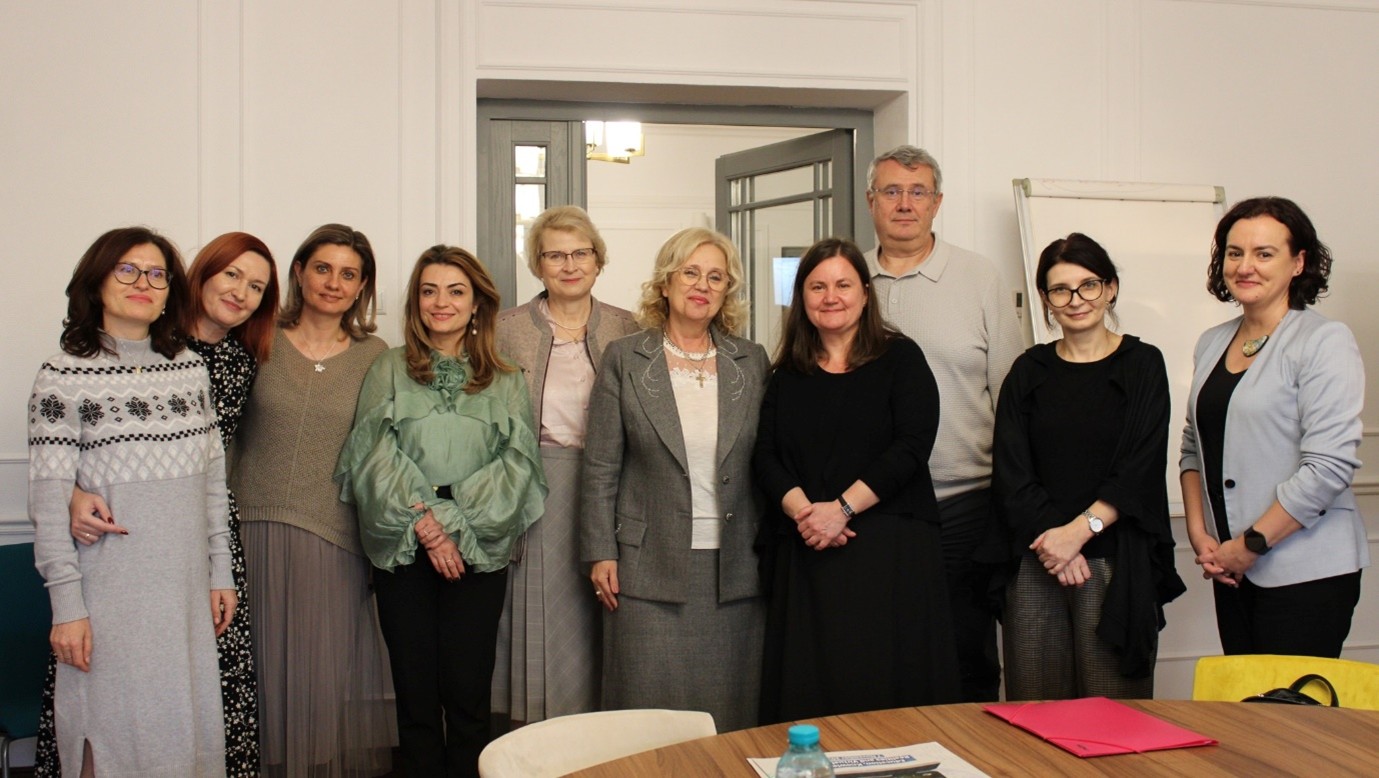
During the meeting, several presentations were held by Nicoleta Popa, including an overview of "Alexandru Ioan Cuza" University of Iasi and the Faculty of Psychology and Educational Sciences. The participants were also introduced to the Romanian school system by Magda Samoila, followed by a presentation on teacher education in Romania led by Andrei Marian. Additionally, the co-teaching model adapted to the local context was discussed, offering valuable insights into its implementation and benefits in Romanian educational settings.
In the second part of the meeting, the focus shifted to analyzing the didactic challenges in the digital approach to education. Discussions covered pedagogical pretexts, contexts, and reflections, highlighting the complexities and opportunities of integrating digital tools into teaching practices. An overview of the following day's activities was also provided by the school’s principal, Camelia Gavrila and teachers from "Costache Negruzzi" National College.
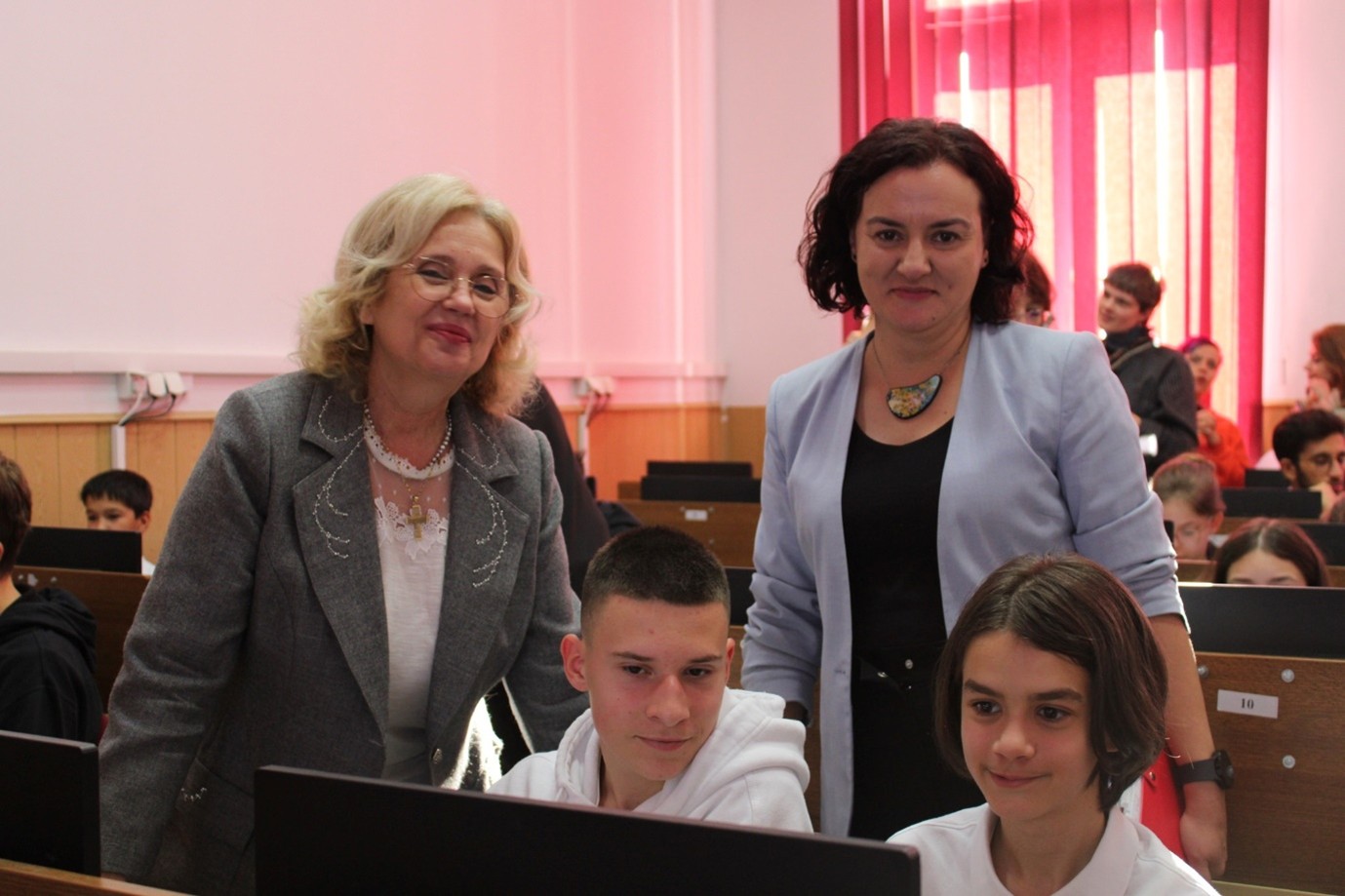
After participants enjoyed a tour of "Alexandru Ioan Cuza" University of Iasi and the Hall of the Lost Steps, guided by Prof. Mihai Bulai, they were engaged in the discussions on topics such as Digital Technology, Digital Pedagogy, and Technological Empowerment. The session included a presentation on Digital Pedagogy: Conceptual Notes and Practical Trends, followed by a Q&A session, led by Ciprian Ceobanu, the director of the department for the training of teaching staff from "Alexandru Ioan Cuza" University of Iasi. This was followed by a presentation on Digital Technology and Technological Empowerment, also with a Q&A session, led by Andrei Marian.
On the following day, activities took place at the "Costache Negruzzi" National College, where teachers demonstrated how technology can support and transform the teaching process.
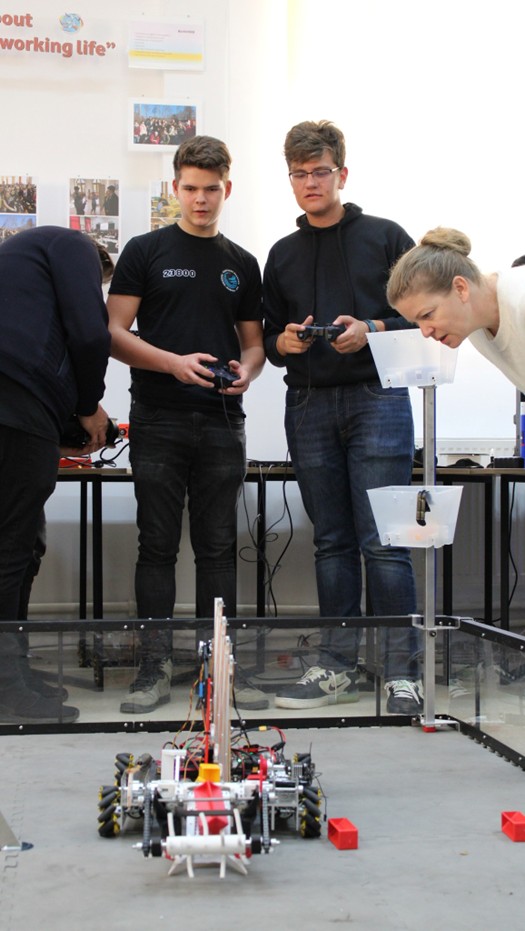
Under the title "Teaching Challenges in the Digital Approach to Education," the educators presented interactive lessons, showcasing the use of digital platforms and educational apps across various subjects. Lucia Miron, Sorin Galer, Lucian Neagu, Mariana Chiriac, Adriana Bozdoro, and Irina Ciobanu offered examples of best practices, illustrating how technology can enhance the attractiveness and interactivity of lessons.
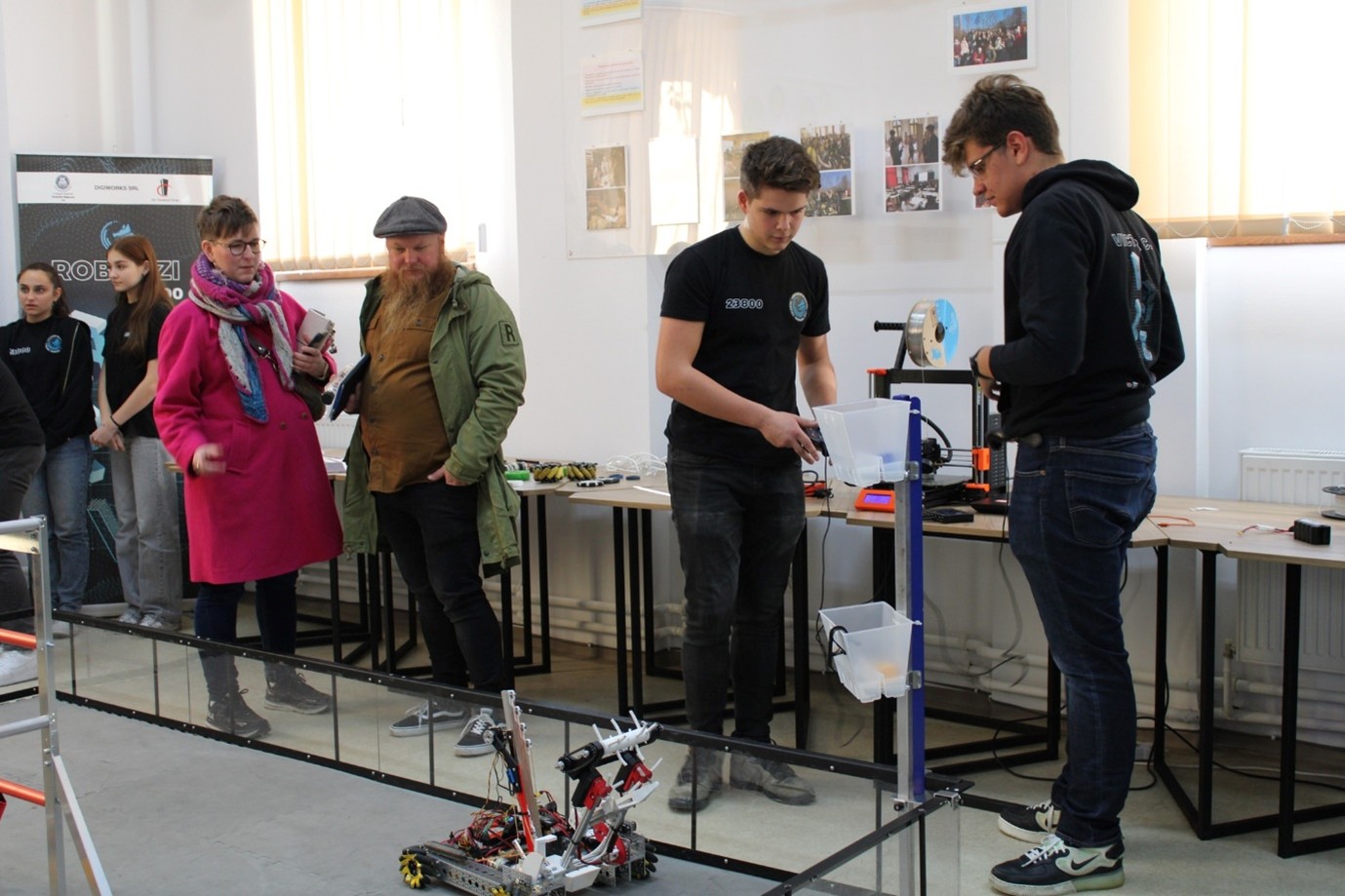
During an event held in the College’s amphitheatre, students had the opportunity to share their views on modern education and the role of technology in shaping their future.
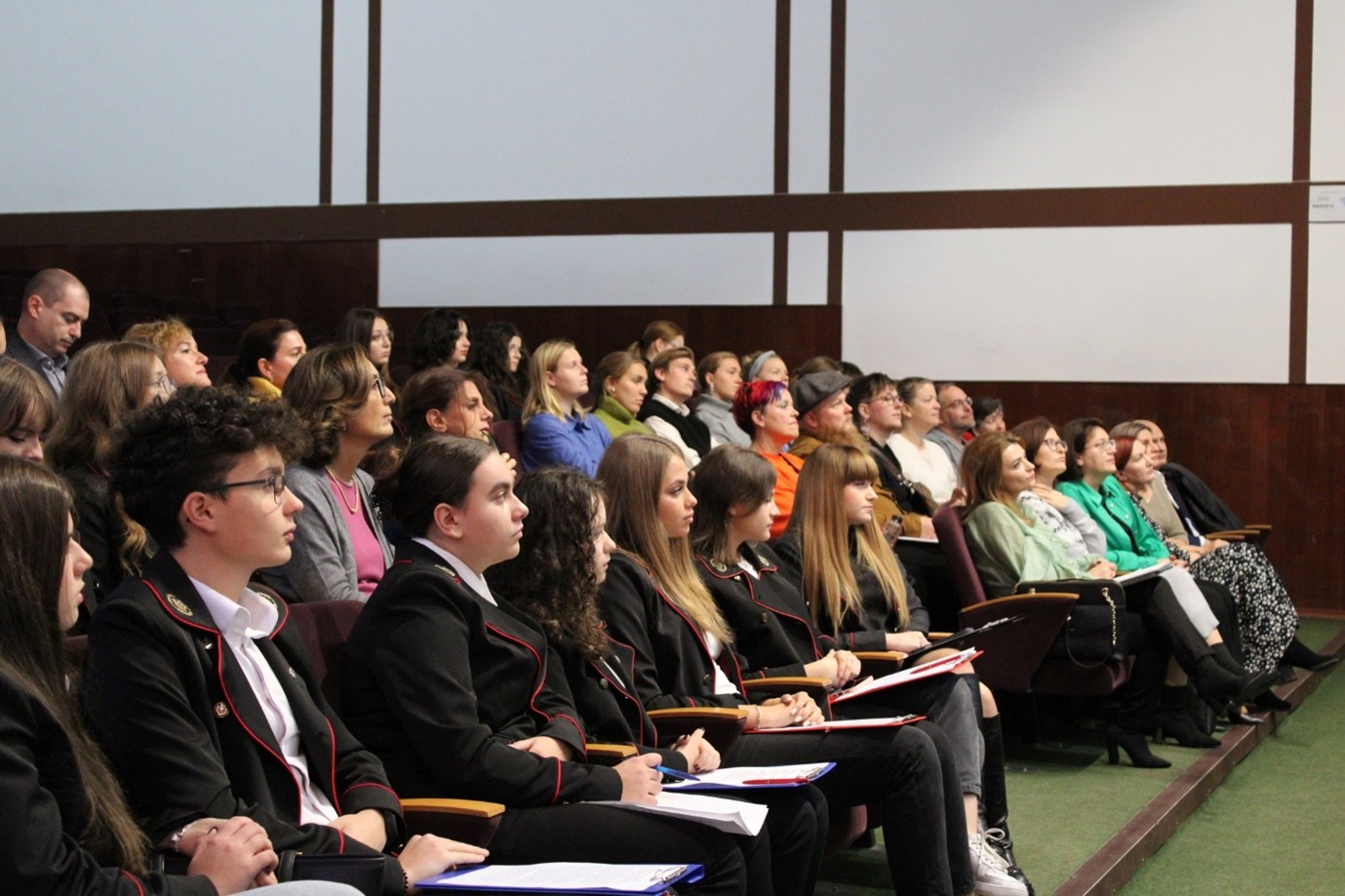
Andreea Săveanu and Ștefan Chiosac, students in
the 11th and 10th grades, spoke about the need for freedom and creativity in
the educational process, the encouragement of critical thinking, and the
importance of moral values in their development as young Europeans.
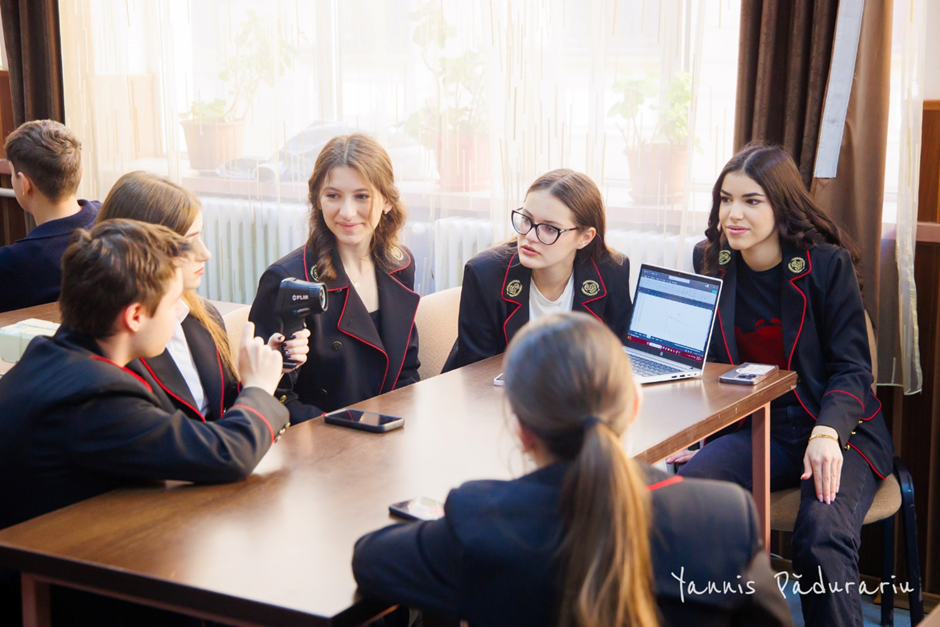
Other students highlighted what high-standard
education means to them and how international competitions and advanced study
contribute to a solid academic and personal preparation.
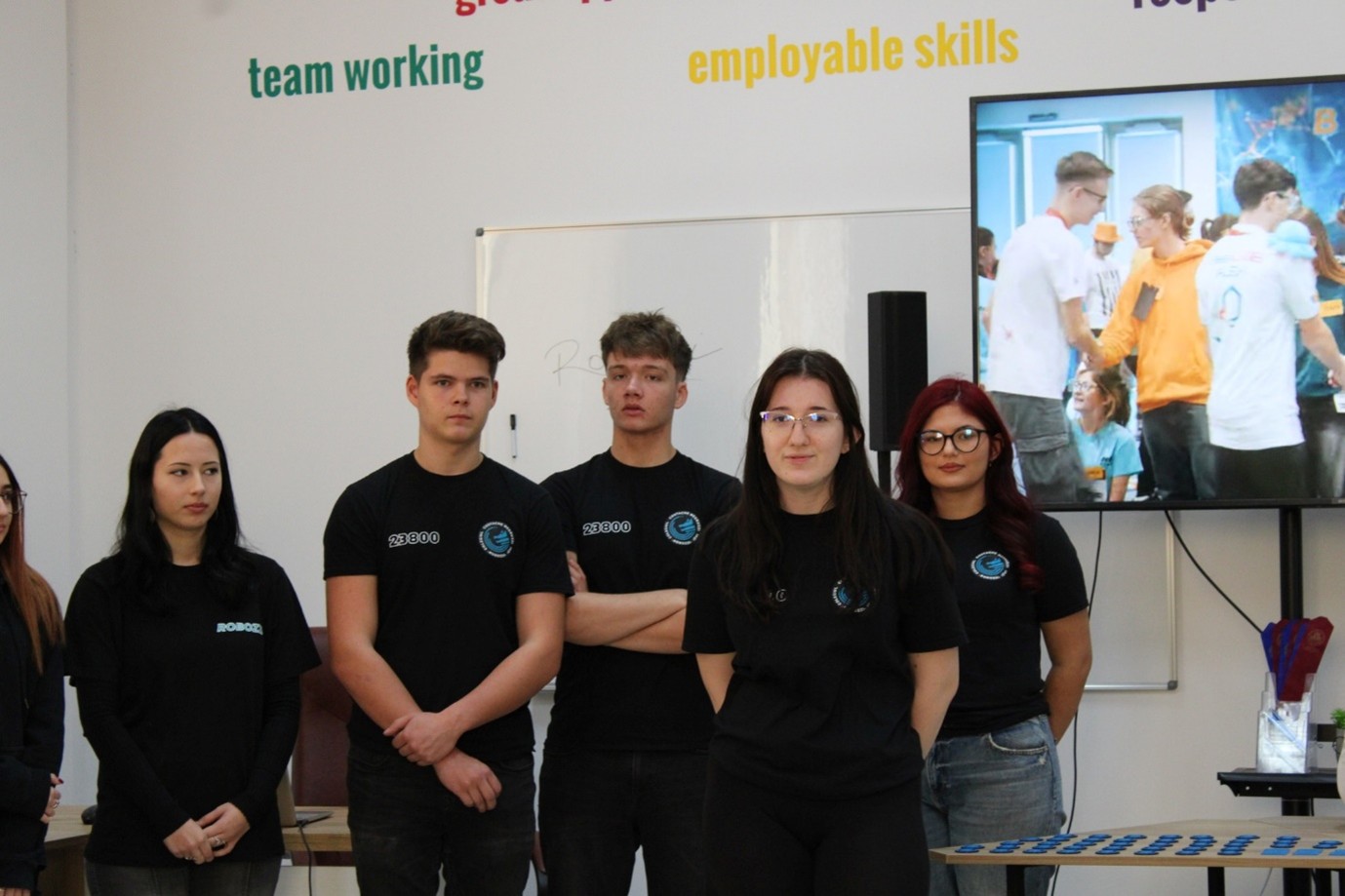
A special edition of the "Negruzzist Journal," coordinated by Professors Adriana Bozdoro and Irina Ciobanu, captured key moments of the event. The publication includes reports on the interactive lessons, debates, and activities that took place throughout the meeting.
The event concluded with a reflection session, where partners discussed the challenges and solutions for training teachers capable of meeting the demands of the 21st century.
Overall, the 21st Century European Teachers study visit to Romania provided an opportunity for educators to exchange ideas, share best practices, and explore new teaching methods, with a focus on technological empowerment, digital pedagogy, and the co-teaching model.
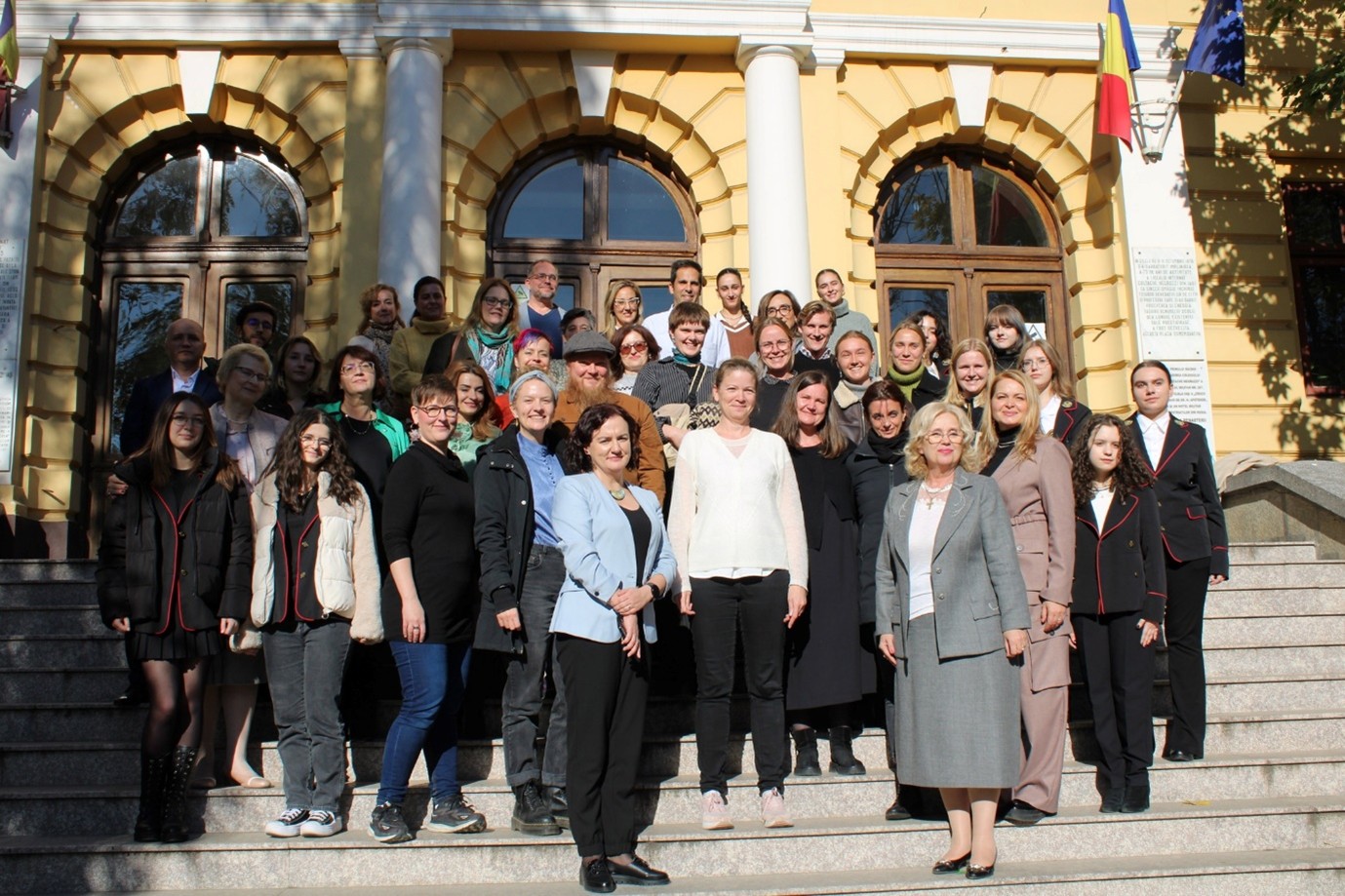
We would like to express our sincere gratitude to our project partners for their enthusiasm, interest, and curiosity in the activities they participated in, which greatly contributed to the success of the event!

Funded by the European Union. Views and opinions expressed are however those of the author(s) only and do not necessarily reflect those of the European Union or the European Education and Culture Executive Agency (EACEA). Neither the European Union nor EACEA can be held responsible for them.